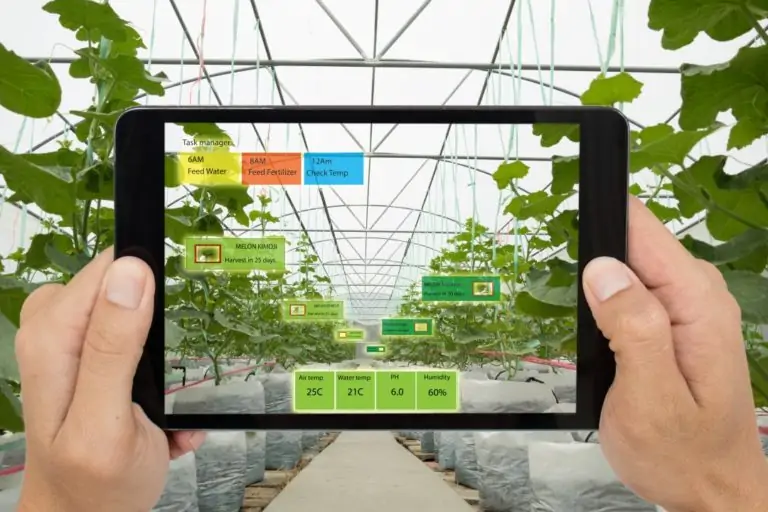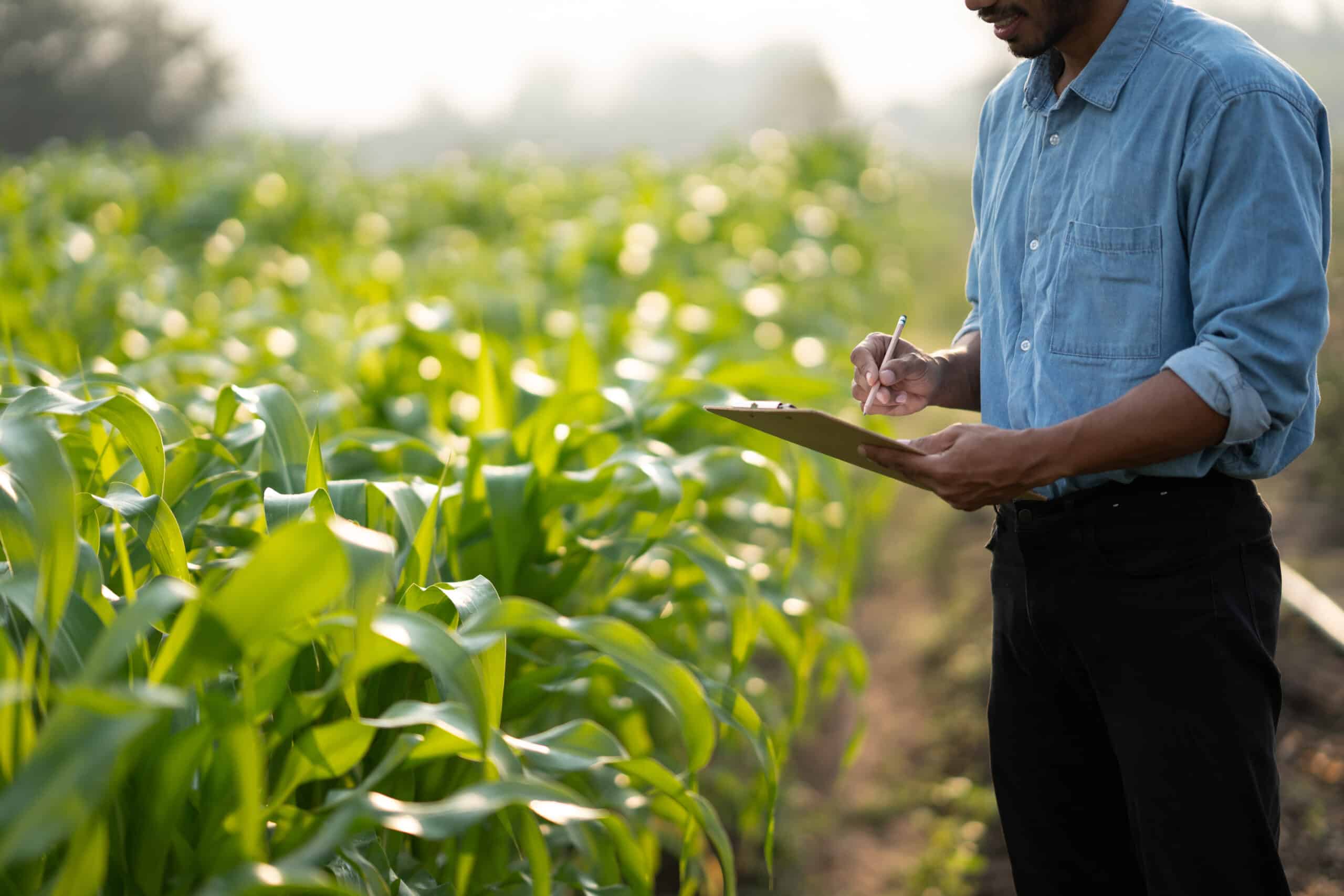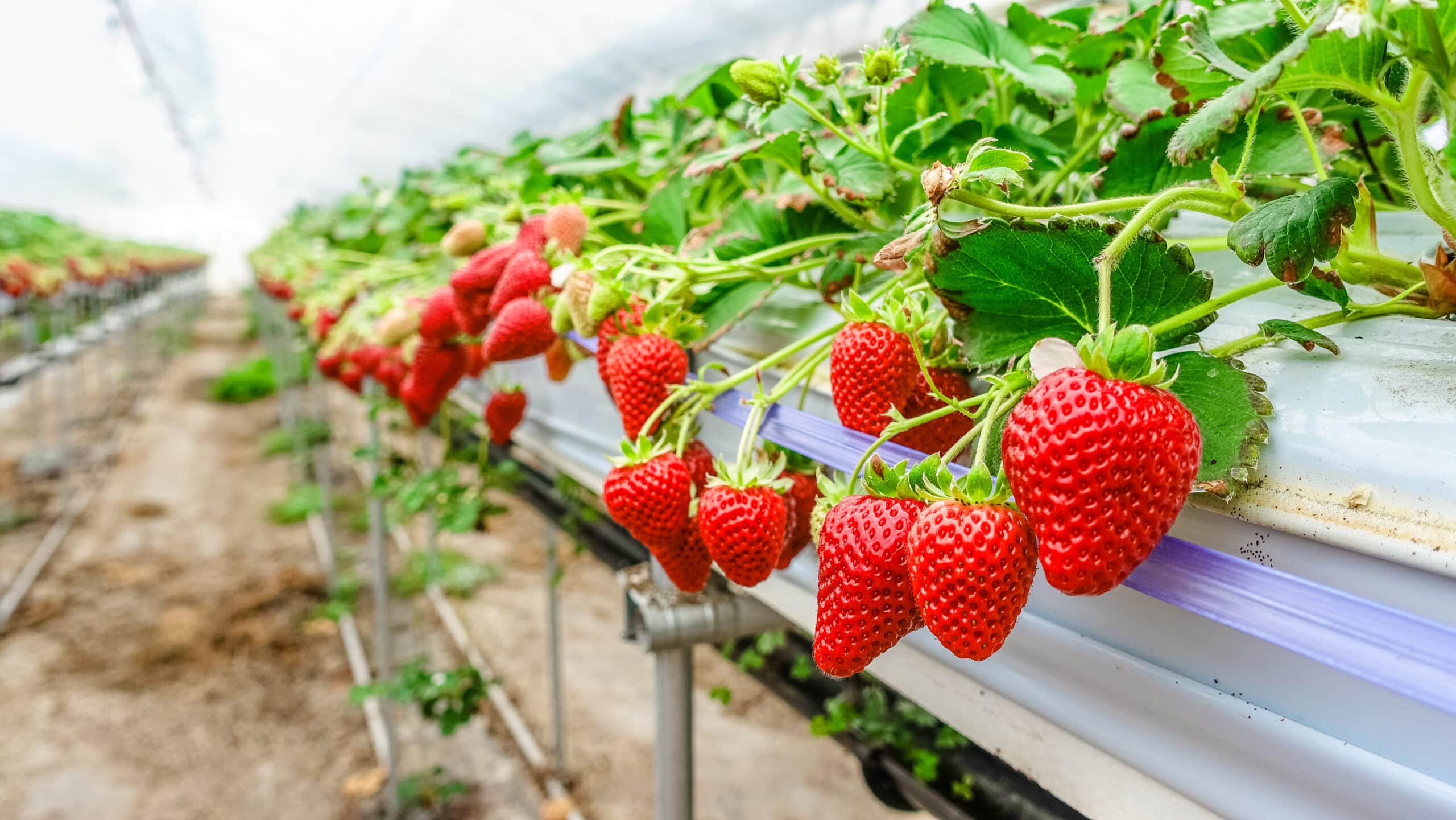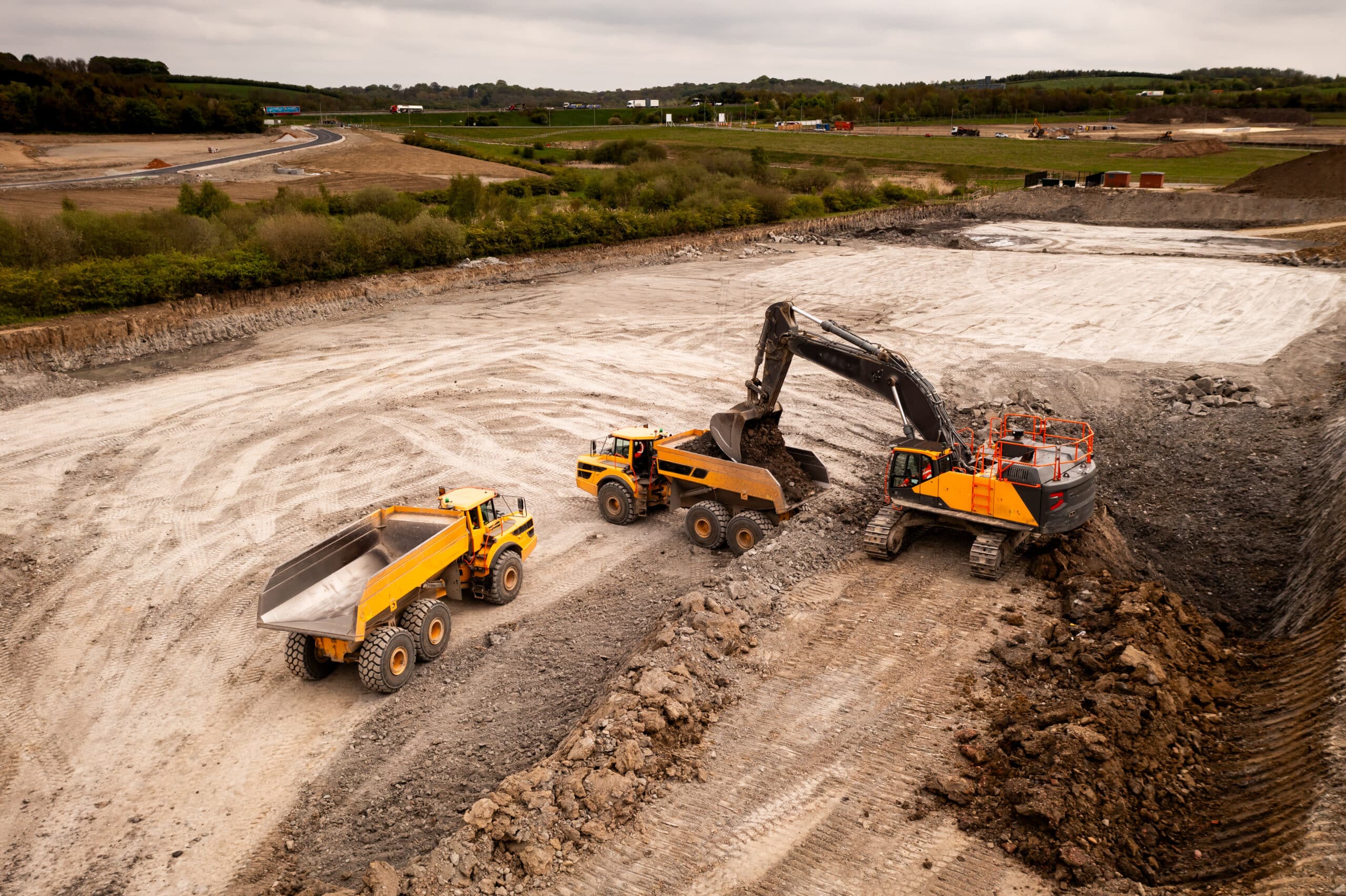Artificial intelligence is “the imitation of human behaviour by machines.” Agriculture, like every other sector, is now being shaped by this technology.
According to a Markets and Markets Report (2019), the agricultural AI (artificial intelligence) market was valued at around $519 million and projected to grow rapidly to reach $2.6 billion by 2025.
Where does AI fit in with farming?
Smart agtech provides the means to take care of plants individually – weeding, spraying and thinning. Or identifying fruit – not just counting them but providing yield and size estimates.
What is often missing is the ability for machines to discern plant health or spot weeds amongst a crop. AI fills this gap and allows machines to be trained to recognise shapes and textures.
The main application of AI in farming up until now has been in precision agriculture: the use of technologies to optimise yield and profitability while working to maximise the efficiency of resources such as fertiliser, even reducing the use of pesticides.
Researchers at the Indian Institute of Technology Kharagpur have developed an image processing-based, real-time variable-rate chemical spraying system.
The tech was developed for the precise application of agrochemicals in diseased paddy crops based on crop disease severity information.
The system uses web cameras for image acquisition, a laptop for image processing, a microcontroller, and solenoid valve assisted spraying nozzles.
Robots improving crop protection
In April 2021 UK Start-up, the Small Robot Company (SRC) launched the UK’s first commercial sensor robot “Tom”. SRC’s first service using Tom will be for plant weeding, with Tom scanning first arable crops to detect weeds, and robot weeding prototype ‘Dick’ then zapping individual weeds with electrical ‘lightning strikes’, using no chemicals.
‘Tom’ and ‘Dick’ work in concert with the artificial intelligence Advice Engine ‘Wilma’ to identify and kill individual weeds with electricity. Also being piloted is SlugBot, working with partners Crop Health and Protection (CHAP), in which Tom uses hyperspectral cameras to detect slugs at night, and then treat them biologically with nematodes.
AI applications can be used to manage livestock as well as crops. These allow farmers to identify and track each animal using images or videos they collect of the herd, giving them the ability to monitor an individual animal’s health and progress in one place.
The Covid-19 pandemic has reduced the availability of migrant labour in many countries. One solution being trialled to help with shortage of workers is the use of AI agriculture bots, augmenting the human workforce.
Farmers are starting to use chatbots for assistance. Chatbots help answer a variety of questions and provide advice and recommendations on specific farm problems.
AI can also be applied to urban agriculture. An Israeli company Seedo has used AI algorithms that create optimal light and water conditions to grow crops in a container small enough to be stored inside a home.
Beyond the farm gate, AI will also allow farms and others within the food chain to accumulate and analyse data to accurately predict consumer behaviour, like buying patterns, leading trends, etc. This will help reduce costs and will also help to reduce food waste.
Are there downsides to AI?
AI offers many potential benefits however it is not without downsides. Due to the large amount of data involved, the energy used in data processing for AI applications is intensive, thereby adding to the already substantial environmental impact of computing technology.
Data storage and processing centres that deliver digital services like entertainment and cloud computing are already responsible for 2% of global greenhouse gas emissions, a number comparable to the overall pollution contributed by the aviation industry. Thus, the environmental costs of AI will need to be reduced before expanding the technology on a global scale.
There are also cost barriers to adopting the technology. A survey of UK farmers found that 56% thought that the capital costs of AI-enabled tech were too high, with another 35% stating the maintenance costs were high or uncertain.
The Future of farming and AI
AI and other cognitive technologies will help farms produce food more efficiently in the future, which in turn will help reduce the environmental impact of meeting the world’s food needs.
AI will allow farms of all sizes to operate and meet the challenge of maintaining food production whilst safeguarding the environment.
The use of AI is likely to continue to grow rapidly throughout the food supply chain and will offer many opportunities for investors over the coming years.
The transformative impact of AI in agriculture presents both a threat and an opportunity to agile and adaptable agribusinesses. As the use of AI grows in the industry, businesses who find novel ways to implement it into their existing operations are reducing operational costs, streamlining processes, and improving overall productivity.
Farrelly Mitchell are perfectly positioned to advise clients on the effectiveness and implementation of new digital tools in agriculture. Our agtech experts stay up-to-date on the latest technological trends impacting the industry, and can provide key insights into their suitability and the financial feasibility of adoption. To embrace the technological revolution and improve your output, contact Farrelly Mitchell today.














